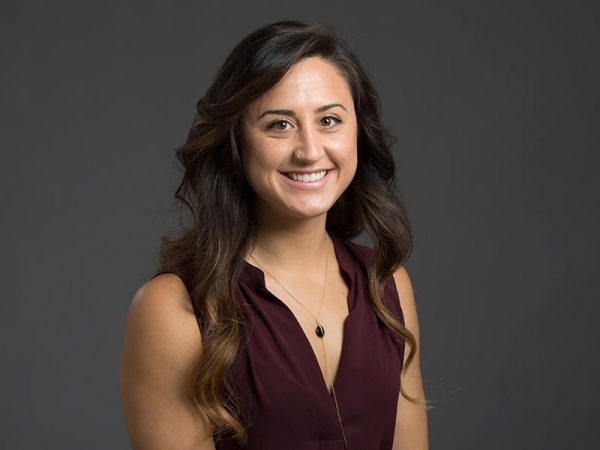
Program Manager, RUMC Global Health
Jacqueline graduated from the Direct Entry Master’s Entry in Nursing (MSN) for Non-Nurses: Clinical Nurse Leader program at Rush in 2015 and started the Doctor of Nursing Practice (DNP) Family Nurse Practitioner (FNP) program in the Fall of 2018.
Jacqueline is currently the Program Manager for Rush University Medical Center Global Health.
What are your thoughts about gaining nursing experience before entering/applying for an advanced practice degree?
Gaining nursing experience prior to entering an advanced practice program is extremely valuable on many levels.
What sets APN’s apart from other providers is the nursing model of care. Both the way we interact with patients and our approach to diagnosing and treating, is built upon our nursing foundations. Our focus is on the patient's overall health and well-being, really taking into consideration how social aspects, home life, emotional and mental health, contribute to a patient's disease. My experience as a nursing assistant and nurse, spending time with patients at the bedside to truly build rapport and a relationship, reminds me of what lies beneath the surface. It reminds me that treatment goes beyond medication, that we need to acknowledge and deal with the social components to help patients reach an overall state of well-being. We ask the questions that lend to the larger picture so that we can work together to form a successful plan.
I also believe that experience in different roles provides valuable inter-professional insight to better understand how hospitals and clinics operate, making you a better provider, colleague and patient-advocate.
What were important elements in your GEM program that you believe prepare you to succeed at a high level in an advanced practice program?
As a Family Nurse Practitioner, I will be the sole primary care provider for many patients. Some examples of other providers who have this role are Physician Assistants who focus on primary care or Medical Doctors who specialize in primary care or internal medicine. The education of these providers is set up differently, learning body systems from anatomy to physiology to pathophysiology to management. Because Advance Practice Nursing education is not set up this way, I do believe the foundational courses of the GEM program provide a strong base for the more in-depth advanced courses taken at a rigorous pace. Intertwining these courses with repetitive, real-world examples while working in the field as a nurse gives you solidifying experiences so that you can truly understand health, disease, illness, treatment and more.
What are your thoughts about the GEM to DNP structure, that is, a strong generalist master’s foundation progressing to a specialty doctoral focus?
I believe that the GEM to DNP structure is beneficial for multiple reasons. For one, many of my colleagues from the GEM program and on the hospital unit, work in fields and/or are enrolled in advanced programs completely different from what they originally thought they'd want to do when they started nursing. Moving from a generalist master's program allows for real work experience to truly understand and guide your passions. Advanced practice programs take time and energy, and I've met a lot of people that have enrolled in master's entry programs and discontinue once obtaining their bachelors and passing the NCLEX because they realize the specialty wasn't right for them. Before starting the DNP program at Rush, I looked into other DNP and Master's programs, staying at Rush was not only the best option as a time commitment (only 2 years and 2 trimesters), but it also ended up being the best option because I was familiar with the layout, instructors, format and more.
Describe your favorite aspect of the GEM program.
My favorite aspect of the GEM program is that we were at the bedside week one. Learning how to provide patient-centered care involves taking care of patients and the sooner you have the opportunity to do this, the sooner you can feel comfortable and excel. Becoming a great nurse and provider is also about being an outstanding patient-advocate and this comes with experience- learning to build rapport with patients and family members, operate within a system, communicate with inter-professional teams - all of which happens at the bedside. Another aspect of Rush University that I cannot speak highly enough about is RCSIP (Rush Community Service Initiatives Program). Whatever interest you have, you can find some way to be of service through RCSIP. I had the opportunity to explore so many different health arenas- pediatrics, substance abuse, homeless shelters, clean needle programs, global health, and more. In all my courses, clinicals, volunteer experiences and leadership positions, I have had preceptors, instructors and mentors that continue to support and guide me to reach my fullest potential.
